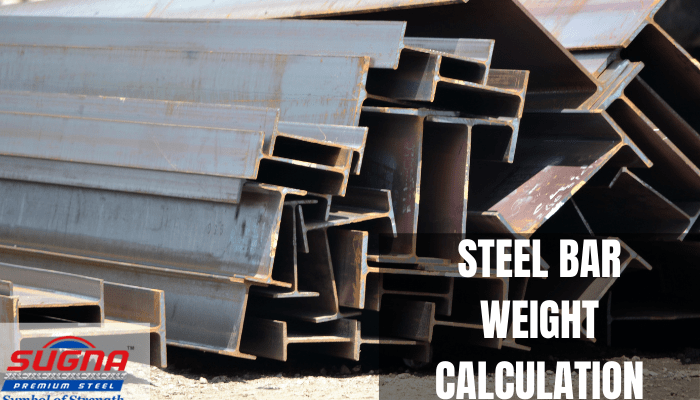Why calculate steel weight?
Calculating steel weight is a simple process, but it can save you money and provide many benefits. Many factors affect the weight of steel, including the quantity, thickness, and purity. However, it is possible to calculate a reasonable weight estimate by considering three key aspects: dimensions, yield strength, and section modulus.
The knowledge gained about calculating steel weight can ensure you’re getting a good value for your investment. It will help you make more informed decisions on what type of steel would be the best to use in specific applications.
How to calculate the weight of the steel bar?

The formula used to calculate the unit weight of steel bars is D²/162. The weight of the steel bar is a very important factor in determining the strength of any object made from it. For instance, if we are making a bridge, one must know how much weight the bridge can hold before breaking.
Calculate Weight before starting the project
It’s difficult to estimate the weight of steel when you’re in the middle of a project. Several variables can affect the weight, such as steel thickness, steel size, steel grade, and steel density. If you don’t account for these, you may have something much lighter than you expected.
For Contractors
If you’re a contractor, it’s important to get the right amount of materials in the right place at the right time. This means that you must use resources efficiently and preserve your profit margin.
If you are a steel distributor or supplier, calculating the weight of each order will allow you to give your customers the best possible pricing.
How can you ensure that they’re getting the best price while still making reasonable profits?
By charging per weight and rounding down to the nearest whole number, you can maintain attractive prices while also offering good cash flow.
For Online buyers
Lighter steel products cost less to ship than heavier ones, so if you’re buying steel sheets online or via phone order and want them delivered, it pays to know how much they weigh. You’ll be charged a smaller amount of money for shipping the lighter products and making more profit on each order.
Steel companies who don’t follow contract terms are penalized with higher costs. This can adversely affect business, so make sure that you know the weight of your steel products and stick to the terms of any contracts you’ve signed.
For Manufacturers or Distributors
If you’re a manufacturer or distributor and have a lot of steel assets on hand, you must know exactly what they weigh so that your financial books will be accurate. Accurate records mean honest reporting and more money in your pocket along with on-time tax payments.
Conclusion
The weight is mostly impacted by the type of steel. The grade (quality) of steel also plays a vital role in determining how much weight it can hold and what strength it has. For example, a low-grade iron will weigh less than high-grade stainless steel
A general rule is that iron weights from .5% to 1% more than its rated value. Carbon content or contained manganese also impacts the number of pounds a given piece can weigh.

